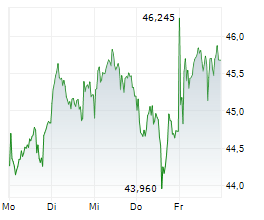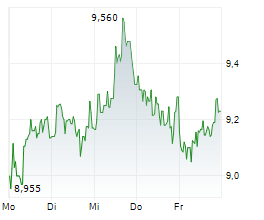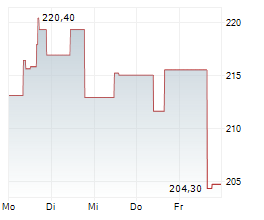EU to Ban Trading of Privacy Coins from 2027
The European Union has recently adopted new anti-money laundering regulations. According to the European Crypto Initiative (EUCI), this effectively amounts to a ban on privacy coins like Monero (XMR).

The European Union has recently passed new anti-money laundering regulations. According to the European Crypto Initiative (EUCI), this effectively amounts to a ban on privacy coins such as Monero (XMR).
Ultimately, it was only a matter of time. Anonymous cryptocurrencies like Monero (XMR) stand in such stark contradiction to standard anti-money laundering (AML) rules that a ban seems inevitable since long. In the EU, such a ban is now apparently set to take effect from 2027, explains the European Crypto Initiative (EUCI). They refer to a package of regulations aimed at combating money laundering.
Central to this is the Regulation 2024/1624, which the European Parliament introduced in mid-2024 and which has now been finalized and adopted. The package of regulations intends to “prevent the misuse of the financial system for money laundering and terrorist financing.” Among many other topics, it addresses cryptocurrencies in numerous sections.
While transparent cryptocurrencies fit well into regulation thanks to the traceability of transactions, privacy coins like Monero, in which transactions are no longer traceable, continue to pose headaches for European lawmakers. “The anonymity of crypto-assets carries the risk of abuse for criminal purposes. Anonymous crypto-asset accounts—like other anonymizing instruments—do not allow for tracing of crypto-asset transfers, making it difficult to identify related transactions that might give rise to suspicion.”
This is precisely what privacy coins are about. A transaction should not be linked to previous ones in order to prevent the financial history—and thus the balances—of individuals from becoming transparent. This meets a fundamental privacy requirement, which not only protects honest citizens from mass surveillance and criminals, but also shields criminals from law enforcement.
However, in order to “ensure the effective application of AML/CFT requirements for cryptocurrencies”—that is, the prevention of money laundering and terrorist financing—“it is necessary to prohibit the provision and custodial holding of anonymous crypto-asset accounts as well as accounts that allow the anonymization or enhanced obfuscation of transactions, including coins with enhanced anonymity features.” Exchanges and other crypto service providers are thus not permitted to offer privacy coins or mixers; even handling transactions in a way that protects customer privacy could become problematic for exchanges and online wallets.
However, these prohibitions apply only to service providers such as exchanges. They do not apply to users, nor to “manufacturers of hardware or software wallets or providers of self-hosted wallets, as they have no control over these wallets.” So it is more of a partial rather than a complete ban, as the circulation of privacy coins is intended not to be completely eradicated but rather restricted.
A New Authority in Frankfurt
The new anti-money laundering regulation will not come into effect until July 10, 2027. This means that exchanges and service providers still have plenty of time to wind down trading in privacy coins and address other potential breaches.
However, starting July 1, 2025, a new authority will be established: the European “Anti Money Laundering Agency” (AMLA) in Frankfurt. It will coordinate European anti-money laundering supervision and, by July 10, 2027, develop guidelines that will define the concrete rules for service providers. In addition to anonymous cryptocurrencies and mixers, the EUCI states that these guidelines will also address dealing with shell companies, “self-hosted” wallets—wallets where users hold their own keys—and third countries.
Crypto service providers will in future be required to ensure that they do not provide services to shell companies, and must identify and verify wallet owners. Transactions with institutions and service providers in third countries with lax money laundering regulations will also be regulated.
For most users, this will not bring about substantial changes. Privacy coins like Monero have already been delisted by most exchanges, and wallet owner identification in accordance with the Travel Rule is already beginning. However, for businesses, even tighter regulation is likely to mean additional compliance effort. At least, the establishment of a central supervisory authority could bring some relief for service providers.























:quality(80)/p7i.vogel.de/wcms/d4/78/d478c1a9d756abef3c1532d6859a7a29/0123963507v2.jpeg?#)
:quality(80)/p7i.vogel.de/wcms/56/34/563474ec61bdfb1aa8f68d563b0cd683/0122087849v1.jpeg?#)





![Wahlen in [LAND]: Rechtspopulist [NAME] gewinnt haushoch – Vorlage](https://dietagespresse.com/wp-content/uploads/2025/05/kopf.png)







































